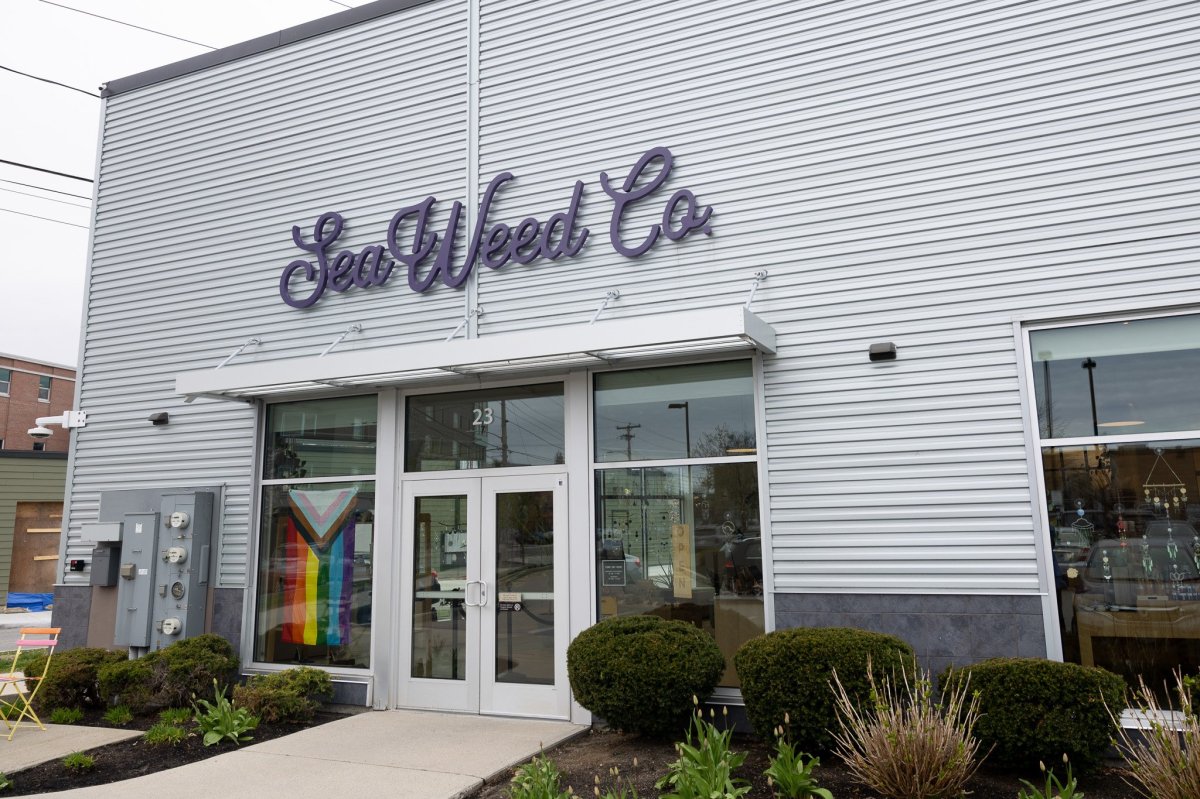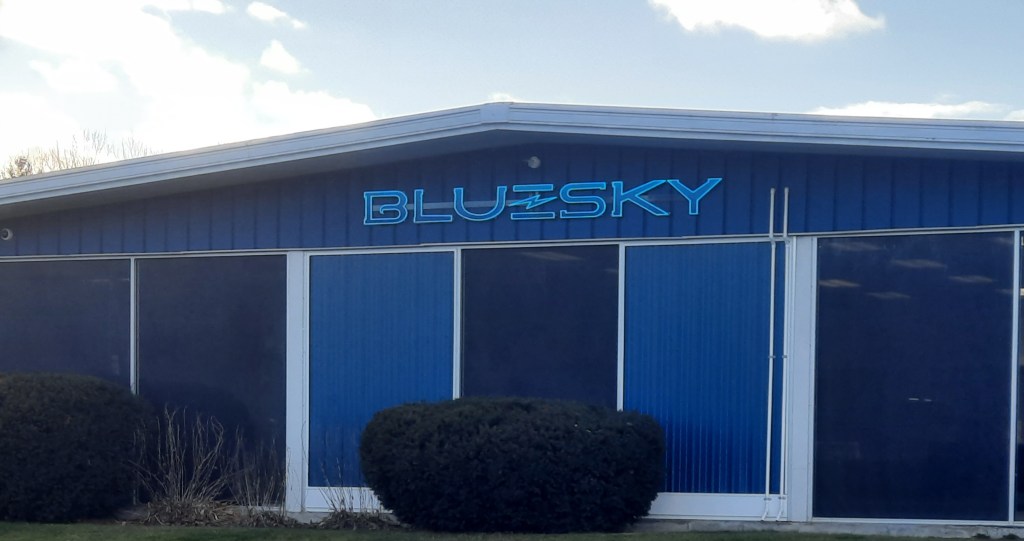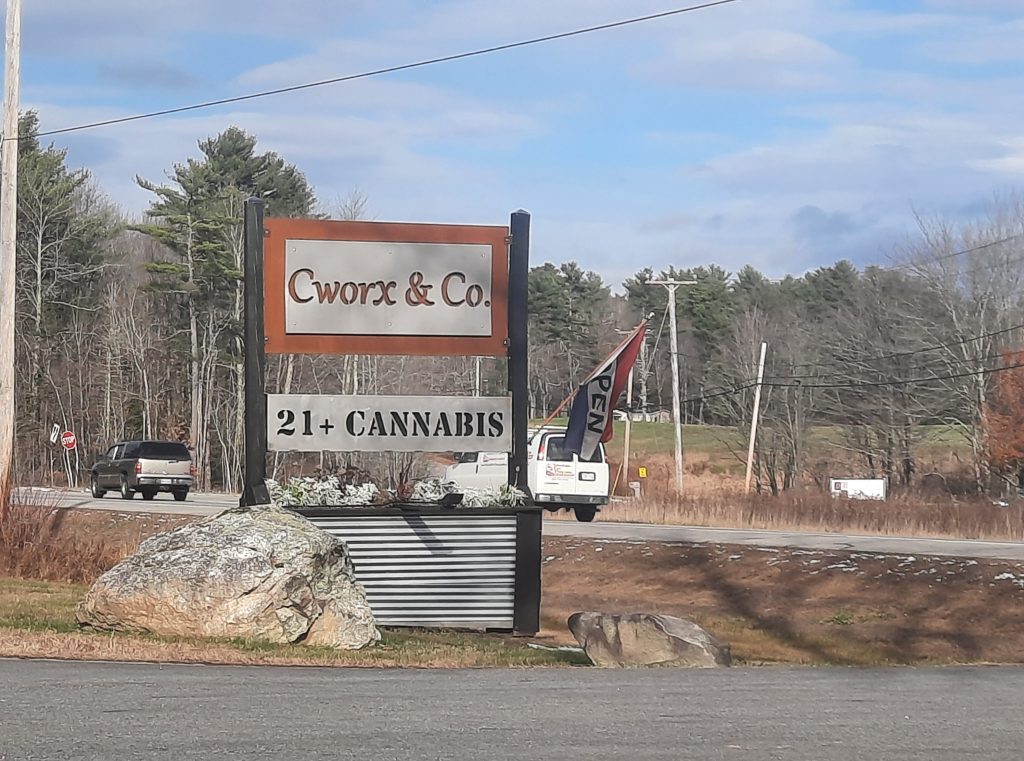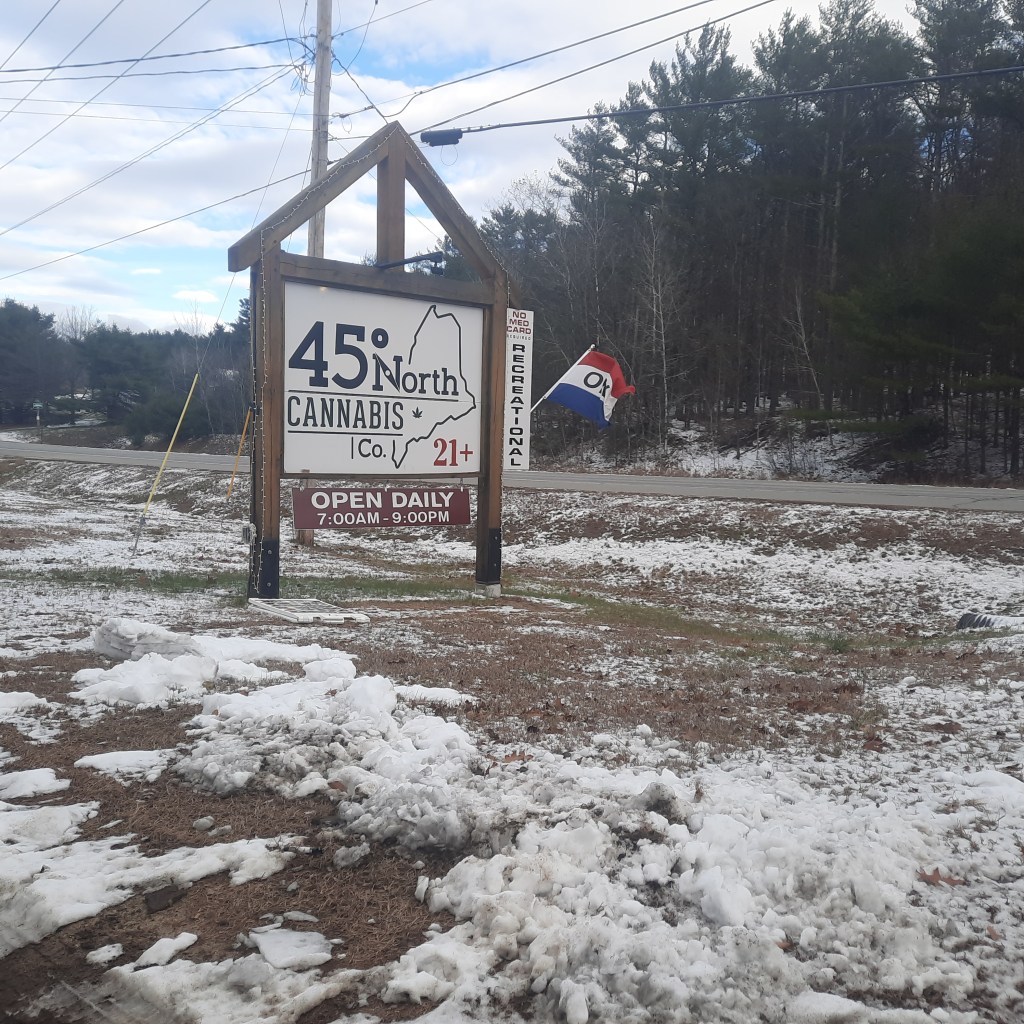
In Maine’s recreational cannabis market, the Wednesday before Thanksgiving is now widely known as Green Wednesday.
It has grown into one of the most reliable sales surges of the year. For many recreational retailers, only April 20 outperforms it.
Kaspar Heinrici, chief executive officer of SeaWeed Co.’s recreational store on Running Hill Road in South Portland, said the trend is unmistakable.
“Green Wednesday is always a spike,” he said. “It is the second biggest day in cannabis sales of the year (typically), second only to 4/20.”
The term “420” is generally attributed to a group of California high school students in the early 1970s who used it as a code for meeting after school to smoke marijuana. The phrase eventually spread nationwide and evolved into an unofficial cannabis holiday celebrated every April 20.
Green Wednesday began as an industry curiosity but has become a steady pre-holiday ritual. Shoppers stock up for the long weekend, stores anticipate heavier traffic, and statewide data shows distinct seasonal bumps in specific product categories every November.
Here are some key points to know about the industry and its place in Maine.
Maine market finds its rhythm
Recreational retail launched in October 2020. According to monthly sales reports published by the Maine Office of Cannabis Policy, the market grew from $82 million in 2021 to $159 million in 2022 and then to $217 million in 2023. Maine is on pace to exceed $240 million in 2025.
During this same period, medical cannabis sales have flattened or begun to decline. The medical program remains essential for many patients, but more consumers have shifted to recreational shops because they are easier to find, more centrally located and offer broader menus. Recreational products also undergo required state testing and labeling, while medical rules are more flexible, another factor that has pushed customers toward the regulated retail side.
Recreational vs. medical
Recreational (sometimes called adult-use) cannabis is sold to any adult age 21 or older with valid ID. Medical cannabis is sold to qualified patients through licensed caregivers or dispensaries.
The biggest difference for most consumers is access. Recreational stores can operate only in towns that formally vote to permit them. Medical caregivers, by contrast, can operate under broader statewide rules.
This local-control framework has shaped the entire map of where cannabis is actually available in Maine.
Allowing storefronts
Despite five years of recreational retail, most Maine municipalities have not opted in to allow recreational storefronts. The Office of Cannabis Policy’s “Adult Use Opt-In Communities” list shows that more than 80% of municipalities have not approved recreational retail.
Some towns, including the Franklin County towns of Jay, Chesterville and Livermore Falls, allow cannabis cultivation or medical activity but have voted against recreational storefronts.
Farmington has one recreational-use store. Meanwhile, several cities and towns have embraced the industry, including Portland, South Portland, Windham, Auburn, Bangor, Waterville, Berwick, Bethel, Ellsworth and Sanford. Portland remains the largest hub, with more than 25 stores.
Starks history
For decades before recreational licensing existed, the small town of Starks was known statewide for its connection to cannabis culture, especially gatherings held at Harry’s Hill.
Long before legalization, the venue became symbolic of grassroots support for reform. State opt-in records show that Starks later voted against allowing recreational retail.
That’s a reminder that today’s municipal decisions do not always follow historical associations.

Drawing shoppers
People shop for cannabis before Thanksgiving for very practical reasons: stores close on Thanksgiving Day; families gather for several days; and holiday travel encourages stocking up in advance.
Some buy for the weekend or for visitors, and some prefer cannabis over alcohol for long family gatherings.
Heinrici, the chief executive officer of SeaWeed Co.’s recreational store, said the motivations tend to be a mix of utility and emotional comfort.
“Yes, people stock up,” he said. “It may be a bit of a cliché at this point, but cannabis can help us get through time with family, whether that is putting up with a difficult relative with opposing political views or truly relaxing and enjoying time with your favorite people.”
He said that the convenience of single-serve and discreet products now guides what customers choose.
“We see people stocking up on items like drinks, edibles, vape carts and pre-rolls,” Heinrici said. “Products that can be consumed discreetly, easily shared or saved for later provide the most convenience to maximize the Thanksgiving holiday.”

What people buy
For anyone unfamiliar with cannabis products: “flower” refers to the harvested, trimmed buds of the cannabis plant, the part traditionally smoked or vaporized. Maine regulations group flower under the category “usable cannabis.”
Pre-rolls are ready-made joints. Vapes use cannabis oil heated in a cartridge. Edibles include infused foods such as gummies, chocolates and beverages.
Cannabis flower is often labeled as indica, sativa or hybrid. Indica varieties are typically described by consumers as more calming, while sativas are associated with more energizing effects; hybrids blend traits of both. These categories are widely used in retail settings, though effects vary by product and person. Many holiday shoppers choose based on whether they prefer something relaxing for downtime or something more uplifting for social gatherings.
During the Thanksgiving rush, Heinrici said the shift toward non-smoked options is clear. “Drinks and edibles become more popular during stock-up holidays like this,” he said.
Office of Cannabis Policy sales data supports this pattern, showing that while flower accounts for the majority of recreational sales statewide, edibles and vapes increase their share during busy travel weeks.
Holiday pricing
Retailers often run Green Wednesday, Black Friday and Cyber Monday specials, though promotions vary widely.
Heinrici also noted a unique holiday phenomenon: locals bringing their visiting relatives to see a Maine dispensary.
“What always surprises me are the amount of locals who bring in their visiting families to show them their local dispensary,” he said. “The best part is seeing the multi-generational visits with the older generation making statements about what weed was like back in their day while the younger generation shows them watermelon-flavored gummies to help with sleep.”
Office of Cannabis Policy data shows the average price per gram of flower declining steadily, falling from $9.23 in 2022 to $7.77 in 2023, to $7.24 in 2024, and averaging roughly $6.74 so far in 2025.
The downward trend is largely due to increased supply and competition in a maturing industry. But retailers say operating costs, including electricity, packaging, insurance and labor continue to climb, creating tighter margins even as consumer prices drop.
Heinrici added that consumer expectations have shifted just as operating costs have increased. “People expect more for less, especially during the holiday weekend. Everyone wants a deal, but the deals are harder for us to offer.”
Because cannabis remains illegal at the federal level, traditional credit-card payments are not permitted. Most recreational retailers rely on cash, in-store ATMs, or debit-style transactions that function like cash withdrawals.

Safety guidance
Green Wednesday coverage also offers a timely reminder of safety guidance.
State officials urge adults not to drive under the influence, to lock up edibles to prevent accidental ingestion by children, and to approach edibles cautiously because effects can take 30 minutes to two hours to appear.
They also recommend avoiding mixing cannabis with alcohol, which increases impairment.
A full list of communities allowing recreational opt-in and the more than 170 stores statewide can be found on the Maine Office of Cannabis Policy website.

We invite you to add your comments. We encourage a thoughtful exchange of ideas and information on this website. By joining the conversation, you are agreeing to our commenting policy and terms of use. More information is found on our FAQs. You can modify your screen name here.
Comments are managed by our staff during regular business hours Monday through Friday as well as limited hours on Saturday and Sunday. Comments held for moderation outside of those hours may take longer to approve.
Join the Conversation
Please sign into your CentralMaine.com account to participate in conversations below. If you do not have an account, you can register or subscribe. Questions? Please see our FAQs.